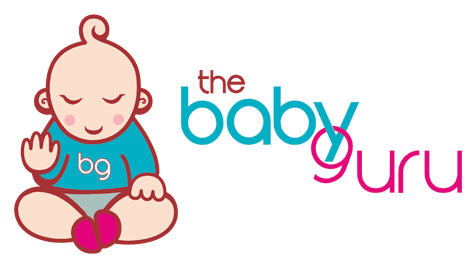Following A Plant-Based Diet: Tips For Weaning Your Vegan Baby
- sam41541
- Apr 25, 2024
- 4 min read

A plant based diet is becoming more popular in today’s society, with many people opting for vegan schemes both out and about and in the home. Despite the obvious benefits for the environment, a plant based diet delivers clean and healthy fuel to our bodies increasing our vitamin intake and lowering risks of cholesterol and heart problems.
It is widely believed that babies need milk to help them grow, a tradition which is practised worldwide and has been drilled into parents for many years, but nowhere are we taught this milk has to come from an animal. The extensive range of plant based supplements which adorn our supermarket shelves still provide our little ones with all the good stuff they need to grow. You can give your little one unsweetened, calcium-fortified milk alternatives, such as soya, almond and oat drinks, from the age of 12 months.
As confirmed by the NHS and British Dieticians Society, a plant based diet is a completely safe and nutritious option for our little ones. If you have made the decision to become vegan, then feeding your baby can pose a bit of a dilemma. The ethical reasons you had for giving up animal products haven’t changed, and your instinct may be that you want to raise your baby as a vegan, but friends and family may be very opposed to the idea and their concerns can make you doubt your choice.
Let me reassure you that it’s very possible to raise a healthy vegan baby, it does take a little more planning, but you probably already have some of those things in place for yourself anyway. Eating animal products is no guarantee of a healthy diet anyway, a child who eats dairy may not have to worry about calcium, but they could easily be missing out on other nutrients. All parents should be aware and make sure their children get what they need, being vegan just needs a little bit more planning.
Here are my top tips:
Breastfeed
If possible, it is recommended to breastfeed your vegan baby until 12 months – more info on the Vegan Society website (link here). They will benefit from protein and calcium in breastmilk, among other nutrients. If you choose not to breastfeed, or stop before a year, make sure your baby has formula milk as vegan milks are not suitable for under ones except when used in cooking. It’s best to speak to your health visitor before using a soy-based formula.
Give B12 supplements
All vegans need a good source of vitamin B12, and babies are no exception. Adults might get theirs from marmite (best avoided for babies due to the salt content), nutritional yeast and fortified foods but as B12 is so vital for good health I recommend a supplement for babies over 12 months old. Sprays and drops are available and very easy to give.
Consider other supplements
The NHS recommendation is that all breastfed babies, and older babies who have started to replace formula with solid foods, are given a vitamin D supplement daily. This is especially important for those following a vegan diet. You may also want to consider omega 3 and iodine supplements as your little one starts to eat more food and cut down on their milk feeds.
Give lots of iron rich foods from 6 months
Babies are born with stores of iron that last about six months, so it is important to include iron rich foods, but there are plenty of plant-based options. Spinach may not be a typical baby favourite, but broccoli, apricots and unsweetened soy yogurts are. Beans, chickpeas, lentils and tofu are all great additions as your baby gets older. You might even consider using an “iron fish” (link here) to add iron to any sauce, stew, soup or puree.
Look for foods fortified with calcium
The other concern for growing babies and toddlers who don’t consume milk is calcium. There are many calcium fortified products available, from orange juice to bread as well as dairy substitutes, and these can be a great choice. Other options include kale, pak choi, dried figs, chia seeds and almonds (ground for use in baking or as a butter).
Avoid too much fibre
It’s also important to realise that a plant-based diet is naturally high in fibre and low in fat, which is great for most adults but not ideal for young children. A baby or toddler is growing fast and usually very active so they need to get a lot of energy from their food, but their stomach is comparatively small, and fibre can fill them up before they’ve got everything they need. It’s best to give small amounts of “filler” or high fibre foods like potatoes and grains and aim to include more nutrient dense foods such as avocado or smooth nut butters. Nut butter can be a choking risk as it’s so sticky but it’s safe either spread thinly or melted into a sauce. Of course, if you have any family history of allergies, you’ll want to ask a health professional before trying nuts or peanuts for the first time.
The world of weaning can be a daunting one so I hope you find this information helpful. I have recently developed a vegan programme to help conscious parents wean their baby onto a completely plant based diet. Packed with tips and tricks, irresistible recipes and one to one advice.
Sam aka The Baby Guru
Useful links…
Follow me on social media for weekly tips and advice on all things sleep, routine and feeding.
Instagram @thebabyguruofficial
Facebook @thebabyguruofficial




Comments